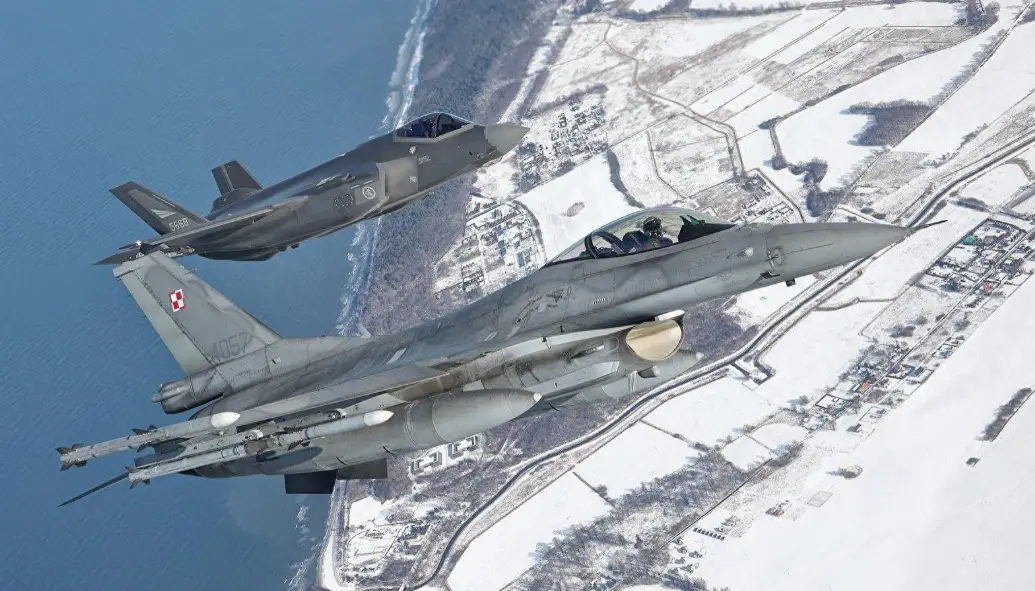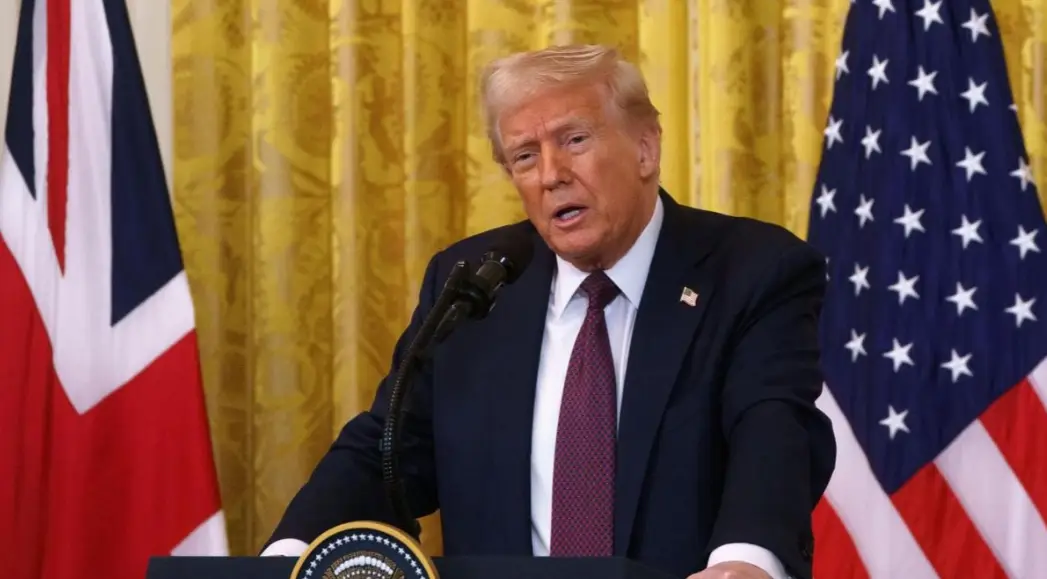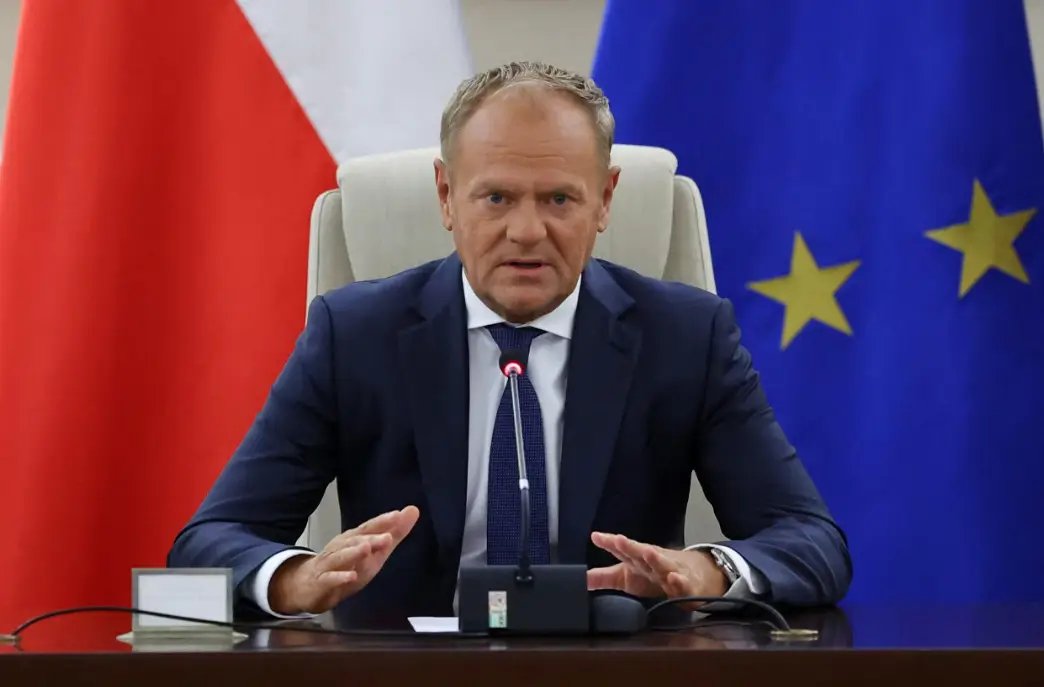Tensions between Russia and Ukraine are like a taut string, poised to break at any moment. Recent news from Poland has undoubtedly pushed these tensions to a new high. On September 10th, Polish Prime Minister Donald Tusk exclaimed that a Russian drone had uninvitedly intruded into Polish airspace, triggering emergency military exercises involving numerous NATO member states. This drama is truly terrifying, and the political implications behind it are hard to imagine.
Looking back at the incident, Polish Air Force F-16 fighter jets immediately responded, and Dutch Air Force F-35s also quickly deployed. Supported by Italian AWACS aircraft and American refueling aircraft, they successfully shot down some of the drones. But was this action necessary? After all, those Russian drones were essentially handmade "toys," not worth mentioning. However, this reaction demonstrates Poland and NATO's heightened vigilance against security threats.

The Polish government strongly objected to the incident. Tusk called it an "unprecedented provocation" and claimed it might be the closest to open conflict since World War II. This statement was not only a rebuke of Russia's actions but also a tactic to exert pressure on international public opinion. Poland immediately requested the invocation of Article 4 of the North Atlantic Treaty, hoping to draw the entire NATO alliance into crisis management.
However, this proposal sparked divergent views among NATO member states. Macron condemned Russia's actions as "unacceptable," while Germany, the Czech Republic, and other countries expressed support. However, Trump's post on his social media platform, "The show begins," made the crisis particularly delicate. The multiple meanings of this statement undoubtedly caused confusion in Poland: Was Trump cheering on NATO allies, or simply wanting to watch the fun?

Several distinct interpretations have emerged regarding this incident:
- A deliberate strategic provocation by Russia. Investigations have revealed that the deployment of these drones appeared to be carefully planned, including using local 4G networks for navigation. This complex operation has led some analysts to believe that Russia may be testing NATO's defense capabilities and laying the groundwork for future military action.
- A byproduct of Russia's uncontrolled drone technology. The Belarusian Ministry of Defense's statement mentioned that electronic warfare jamming could have caused the drone to deviate from its course, and this factor is highly plausible in a complex international environment. If this explanation is confirmed, the nature of the incident is far more than a simple "provocation" and may simply be a technical error.
- Ukraine's "borrowed knife" strategy. Zelenskyy's swift response has also raised many questions. Some speculate that Ukraine may be deliberately using NATO's power to change the situation, escalate the conflict into a larger-scale war, or even seek greater benefits.
However, NATO's response has been somewhat cold. During the consultations on this incident, while NATO expressed concern about Russia's actions, it still refrained from taking drastic military measures. Ironically, many observers believe that NATO seems more like an insurance company, vocal but slow to act, preferring to remain on the sidelines when faced with a real crisis.
After a series of tense situations, observers are forced to question NATO's bottom line. Past experience teaches us that true military conflict often requires a clearer trigger. Even a few drone incursions might not shake the vast military alliance.
As some netizens have noted, NATO's actions seem more flexible than its belt: "All talk, no action," leading many to question its effectiveness. To safeguard its own interests, NATO prefers diplomatic solutions to threats rather than rash attacks.
For this reason, following the events in Poland, we must seriously consider how the situation will evolve. If NATO continues to fail to take effective action, will Russia continue to exert pressure on its neighboring countries? And with Ukraine facing a life-or-death choice, will it take even greater risks, attempting to escalate the conflict in an attempt to gain a more favorable outcome?

Behind all these disputes, we likely see more than just a few drones flying across borders. We see deeper fears and calculations, as well as a complex game of interests between countries. Perhaps every future upheaval will offer us new insights, teaching us how to maintain rationality and clarity in the ever-changing international landscape.
On this international stage, all participants are striving to write their own scripts. Whether it's Poland, Russia, or NATO, all parties are attempting to influence the course of events through their actions and decisions. However, just as Trump said, "The show begins," the true suspense remains hidden behind the scenes, awaiting the audience's revelation.
How the future will unfold remains fraught with uncertainty. Will countries reach a compromise amidst the intense game of fray? Or is a greater conflict about to erupt? Behind this seemingly innocent military incident, perhaps lies a deeper philosophical reflection: In today's globalized world, how to balance power and achieve cooperation may be the most pressing issue we must confront.




